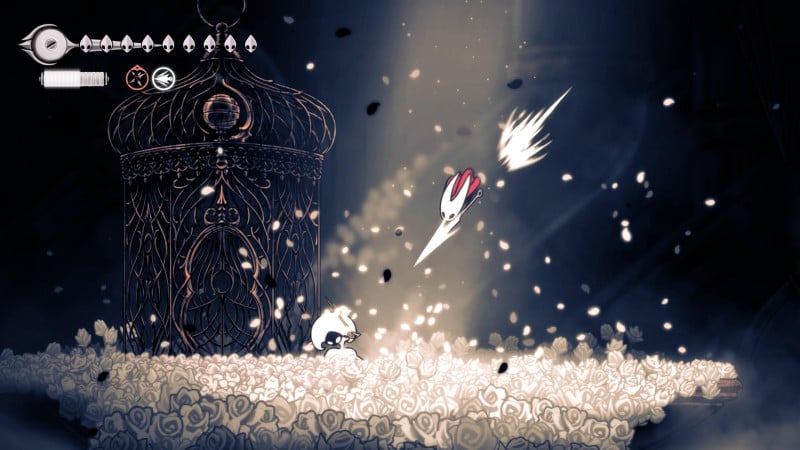Ara: History Untold
MSRP $60.00

“Ara: History Untold brings city-building to Civilization with strategic success.”
Pros
- Deep resource management
- City-builder hooks make it more intimate
- Genius elimination system
- Lots of meaningful decisions
Cons
- Can be demanding on PC
- Each round feels the same
- Repetitive late game
I’ve played plenty of strategy games that require me to build a modest settlement into a thriving metropolis, but Ara: History Untold really wants me to know just how monumental a task that is. I mean, have you ever stopped to think about how supply chains emerge from nothing and form a complex central nervous system that runs through a country? It’s a mind-boggling miracle.
The latest title from Xbox Game Studios and developer Oxide Games doesn’t take that fact for granted. Rather than copying the 4X hook of Civilization wholesale, it drops an extra layer of micromanagement on top of the formula. I’m not just amassing land and going to war with other nations, but creating a pipeline of goods that all feed into one another and trading them with my neighbors to keep my growing society healthy. By the end of just one round, I walk away with a newfound appreciation for what humanity has constructed.
Ara: History Untold is a more complicated take on Civilization that takes a lot of time to fully understand. Once you find your footing, though, you’ll find an engrossing strategy game that at times feels more like an intimate city-builder. Matches can be slow and feel the same from run to run, but the more hands-on approach shines a light on all the tiny, interlocked successes that build one nation.
Building a supply chain
On its surface, Ara: History Untold sounds, looks, and feels an awful lot like Civilization (no surprise considering Oxide Studios was founded by former Firaxis developers). It’s a traditional turn-based 4X strategy game where players choose from a long list of immortal world leaders — from Genghis Khan to Wu Zetian — and must build a modest civilization starting with nothing but a humble village center. Scouts are sent out to gather resources. Resources are used to construct automated buildings that produce wood and stone. Those materials turn into bigger buildings capable of producing more complex goods. A tribe grows into a nation, learning new technologies as they move into the early ages and, eventually, into the modern science age.
While it’s all a bit derivative at first glance, Ara’s unique spin on the genre begins to present itself the longer a round goes on. The biggest change is its greater emphasis on city-building, which requires lots more micromanagement. On each turn, I’m able to queue up building projects, send scouts or troops around the generated map, and claim new regions as my population grows. But I also need to build and juggle a complicated supply chain as I unlock more building options. One building will let me turn my basic farm foods into feasts that I can deliver to my cities to give them a constant stream of food. A mill can generate paper, which I can use elsewhere to craft books and encyclopedias, which in turn can lead to the creation of libraries. It makes for a game with a much higher learning curve (I was still struggling to figure some things out after 12 hours), but it’s an absorbing loop once you get the hang of it.
It’s the kind of delicate tightrope act that makes strategy games like this so easy to obsess over.
Once I finally did, I came to appreciate how much Ara worked my brain to keep my few cities operating. When my population outpaced my food production, I started constructing workshops to create metal tools, which I could assign to each farm to bump their harvest. When that wasn’t enough, I opened up trade with China to get a consistent flow of meat from the nation. Problem solving like that pops up throughout a round, as figuring out how exactly to acquire a needed resource becomes a puzzle.
There’s some great society-building choices that come with that, too. Whenever I finish researching a new technology, I can begin a new project. Once I’ve completed enough, I can choose to move on to a new era, unlocking more options, but giving up the ones I’ve yet to study. In one round, I decided not to focus on religion, so I missed a chance to create a structure that produced stained glass. That meant I couldn’t construct a valuable cathedral in the late game. I had to convince a nation to trade the good with me to get it done, emphasizing the importance of diplomacy. It’s the kind of delicate tightrope act that makes strategy games like this so easy to obsess over.
Ara plays into that with one small visual detail that goes a long way. At any time, I can zoom all the way in on my cities and actually see each individual building, as my tiny residents wander around. That can make for a very demanding game (my PC struggled to keep up in the late game), but one that feels more intimate. My village isn’t just a series of UI markers on a grid; it’s a real, thriving place that I can observe like an ant farm.
Less effective is the zoomed-out view, in which my buildings and troops are represented with round UI markers. They’re huge and invasive in the late game when I have tons of buildings to manage. In one game, that annoyance became a burden when my capital was attacked. I could not see the enemy troops approaching through the mess of icons onscreen. Before I even realized what was happening, a siege took place and I lost it all. Frustrations like that can make Ara more difficult to grasp than it needs to be, as I’m often left clicking around icons as I try to find specific buildings I want to upgrade.
The race for prestige
Ara departs from Civilization in other key ways. For one, there’s its win condition. The ultimate goal of its three-act games is to amass as much Prestige as possible. That resource is gained in tons of ways, from erecting landmarks to hiring historical figures (Paragons) to produce artistic masterpieces, to waging war on neighboring regions and taking control. It’s a surprisingly streamlined goal that’s easy to grasp, giving me more space to focus on the nitty-gritty.
In even the smallest systems, I can feel tangible results as my nation and influence grow.
As a great side effect, Prestige smartly solves one of Civilization’s problems. At the end of each act, a few nations with the least Prestige are deemed irrelevant and wiped off the map. It’s almost like a battle royale, where there’s a cultural circle closing throughout a game. That decision keeps the late game more interesting, as each act sets off a race for newly opened land. It even creates some devious strategy potential. In one round, Ethiopia was encroaching on my cities, but struggling to produce Prestige. I formed an alliance with China in hopes that I could wage war against them, help China steal one of their cities, and swap their rankings before the end of an act. It was a cultural proxy war.
I love how much that focus on Prestige allows me to stick to a playstyle I like rather than feeling pressured into the “right” way to play. In my most successful run, I took on the role of Yaa Asantewaa and decided to lead Ghana to being a peaceful, art-driven nation. I avoided war almost entirely and instead focused on fostering strong trade alliances with China and Belgium. I pumped out masterpieces, placing them in museums that granted me constant prestige bonuses. That strategy paid off in the long run, pushing me to the top of the charts. The only downside was that I was woefully underprepared when Germany waged war against me, took my capital city, and sent me packing to the coast. As a silver lining, that let my people establish a coastal fishing industry.
Stories like that are what makes strategy games like this so special, even if they look as dull at paint from an outside perspective. Ara creates plenty of opportunity for narrative. For instance, I adore its religion system. Here, I can choose a religion from a long list and then spread it to unlock new Verses, which grant me more passive perks. In even the smallest systems, I can feel tangible results as my nation and influence grow.
Endgame struggles
There are times when I can feel the limitations of it all. I have more diplomacy options here than I do in Civilization, but it still feels lacking. I can create trades, form research agreements, and give gifts, but I don’t always feel like I have too much power over my relationships. They go up and down on a whim and each nation largely feels interchangeable. The only place they feel distinct is when I try to form alliances, as some will refuse if I haven’t shown my military might or fulfilled other conditions. Even my choice of world leader doesn’t feel terribly impactful.
All of that complex micromanaging funnels toward automated monotony over 700 or so turns of play.
Ara begins to feel smaller than it initially looks when I dive into a second playthrough. In my first attempt, I chose China. I got a good way through Act 1 before starvation caught up with me. I started my second game as Ghana, eager to see what would change. Nothing really did. I got hit with the same scripted events and I found myself roughly progressing in the same way. I could see the machine behind the simulation
That became even clearer near the end of my games, where Ara especially struggles. While the first two acts are filled with events and diplomatic decision making, all of that stalls out the closer I move to the finish line. Once I’ve built great relationships with other countries, I’m locked in a loop of leaders proposing the same research agreements and alliances over and over. I find myself clicking “Next Turn” more and more, with nothing new to manage. I’m just passively amassing resources by the end as my PC chugs and chugs with each turn. All of that complex micromanaging funnels toward automated monotony over 700 or so turns of play.
Though those issues, paired with its high learning curve, means that it struggles to match the more approachable Civilization, Ara: History Untold excels as a fresh take on a familiar formula. Rather than running away from the day-to-day operations that other games may ignore in the name of streamlined fun, it derives power from them. My proudest victories aren’t the wars I win; it’s when I’m able to finally create a constant stream of medicine and keep my people healthy without jacking up taxes in the process.
Ara: History Untold was tested on PC.







